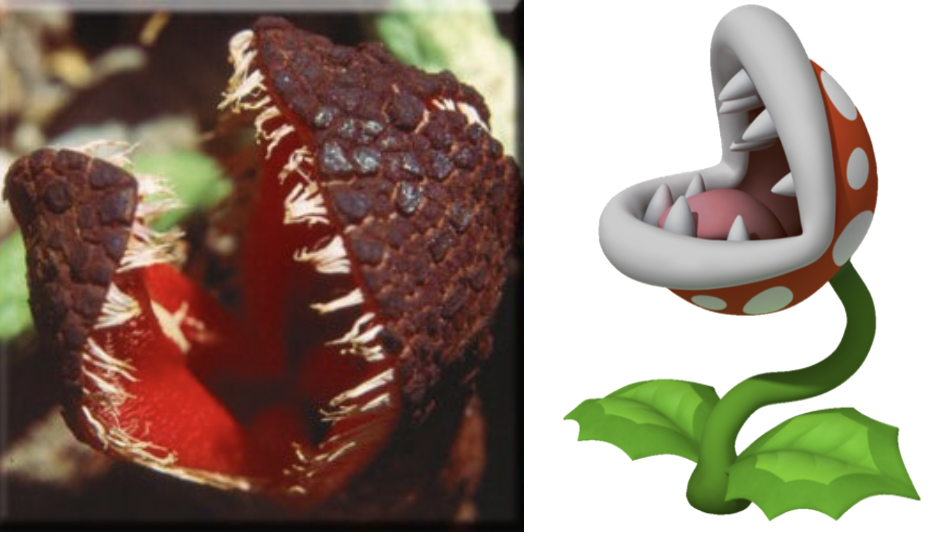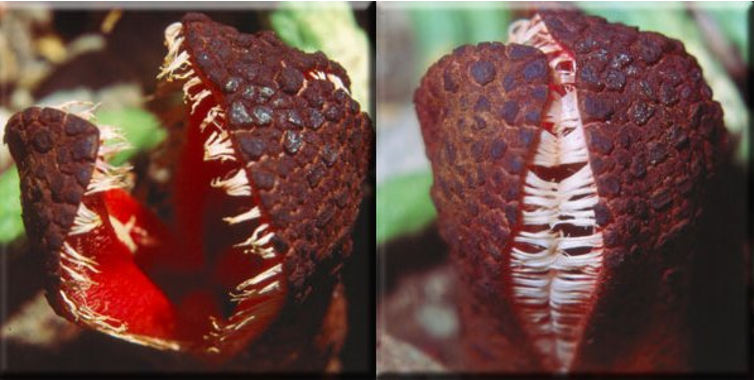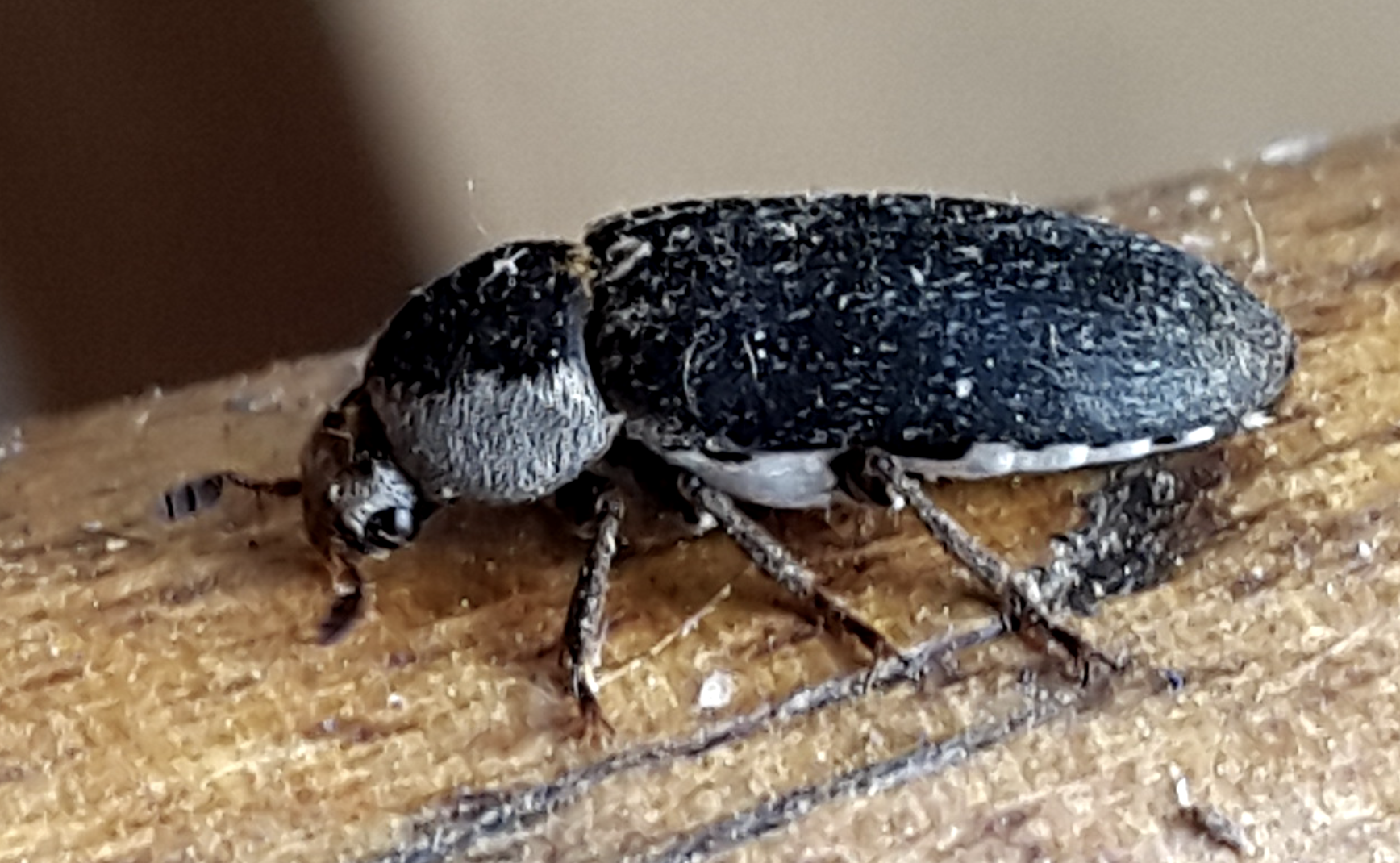By Courtney Parrilla
Many of us grew up playing videogames. The Nintendo franchise is very popular with many of us and we grew up playing Mario games. The games are filled with plant and animal enemies with fungi used as “power ups”. Contrary to the fantasy world of videogames, some of these in-game species have real life doppelgangers. These doppelgangers happen to be just as cool or scary as their digital counterparts.
Many of us are familiar with this image below of a red and white mushroom. Its real life counterpart to the right is Amanita muscaria or Fly agaric mushroom. Contrary to its in-game use, this mushroom will not make you grow taller. The effects of Amanita muscaria are a bit more extreme. This mushroom is heavily hallucinogenic and prone to cause a variety of sensor blurring side effects. However, these side effects might make you appear taller to yourself!
A power-up mushroom next to its real life doppelgänger Amanita muscaria.
Another common enemy in the games is carnivorous plants known as “piranha plants”. These annoying enemies pop out of pipes in the ground to give you a hard time. This plant has a very unique and sci-fi looking real-world look alike.
This terrifying plant is native to South African forests. Besides looking similar to it’s digital counterpart, this species is accustomed to relying on unique species interactions. These plants have large roots under the soil and a large “flower” that is the only part of the plant visible above ground. These plants have no leaves or chlorophyll and resemble fungi more than other plants. Lacking chlorophyll in order to photosynthesize, Hydnora africana takes on a parasitic role. As an obligate parasite, Hydnora africana uses its roots to tap into nearby plants (especially plants from the family Euphorbiaceae) to obtain all of its nutrients. Despite its already unique features, one feature that makes it truly spectacular is its method of pollination. These plants use brood-site mimicry to attract insects. It is reported that these plants smell like feces when they bloom. The foul scent attracts insects such as Dermestes maculatus also known as the hide beetle. These bugs feed on animal feces and exist almost worldwide.
Hydnora africana in all of its glory.
The beetles will crawl down into the plant and get trapped by the plant’s androecial chamber. The flower will then close, keeping the insects in. The flower will keep the insects trapped until it releases its pollen. After pollen is released, the flower will open and release the surviving bugs. The released bugs will leave the flower while covered in Hydnora pollen and then go on to pollinate other plants. Hydnora africana has been observed to have up to three flowers open at once.
Dermestes maculatus.
A, Three androecium chambers arrayed to show the ‘‘catch-and-release’’ mechanism of Hydnora africana. Left, flower is carpellate, and the inner surface of the androecial chamber is smooth and orange-pink (days 1–3). At this stage, Dermestes maculatus and other insects cannot escape. Center, flower is at pollen release; the inner surface of the androecial chamber begins to darken and becomes stippled. At this stage, beetles begin to escape. Right, flower is 3 d past pollen release, and the chamber wall is dry and textured. Scale bar 1⁄4 1 cm. B, View down into the androecial chamber, with antheral ring in the center, just before pollen release. Five D. maculatus marked with correction fluid are visible. Scale bar 1⁄4 1 cm. C, SEM image of H. africana pollen on the dense hairs located on the elytra of D. maculatus. Scale bar 1⁄4 20 mm. D, Dermestes maculatus, the primary floral visitor and likely pollinator of H. africana, dusted with a heavy pollen load after pollen release. Scale bar 1⁄4 2.5 mm. From Bolin et al. 2009.
The amount of independence and species interactions between Hydnora africana and other organisms is extraordinary. This level of resourcefulness is not commonly seen amongst other plants. If this plant was not strange enough, it also produces fruit! This fruit develops underground and is said to be similar to a potato. This plant is more chaotic and mysterious than any plant in a videogame. Plants like these keep our ecosystems incredibly diverse and unique in this world.
About me:
Hello! My name is Courtney and I am a Junior at the University at Buffalo. I major in environmental science and I absolutely adore it. My hobbies include playing videogames, hiking, creating art, and looking after the extremely energetic tortoise. In the future, I would like to get involved in field research and hopefully get involved in working with aquatic ecosystems.







